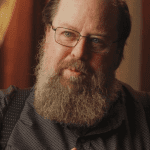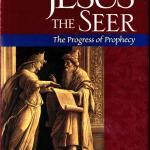There has been some debate as to who first uttered the phrase made famous by Keyser Söze in 1995’s cinematic classic The Usual Suspects. Approaching the end of the film, the mythical crime kingpin states, “The greatest trick the Devil ever pulled was convincing the world he didn’t exist.” If you haven’t seen the film, this moment is a confession of sorts. Until now, the audience is not sure of Söze’s identity. The viewer spends the film seeing others cower under his influence without seeing him. So much so, his reputation grows into something beyond that of a normal man; many doubting his existence.
Unlike the film, I won’t go as far as to say it’s the “greatest” trick the devil ever pulled, though that worked well for cinematic effect. However, I will agree that one of the most effective methods for disarming an enemy is to convince them the opposition is imaginary. This is especially true when it comes to the spiritual and religious; there is a fine line between denial and manipulation.
If you’ve spent any time reading this blog, you already know we are passionate about theology. We believe it critically important, completely captivating, and objectively unavoidable. No one can avoid making theological statements and producing theological positions. Even the smallest utterance about God, religion, nature, or humanity speaks volumes about one’s worldview and relationship with Jesus. The theological claims of Christianity and Jesus are far too cosmic and all-encompassing to be a non-issue. Indeed, everyone is a theologian, as the title of the late DR. R.C. Sproul’s books suggests.
A pursuit of theology is fundamental and vital to our make up as human beings. Because we bear the Imago Dei (we are made in the image of God), we’re designed with natural propensities for the spiritual and divine. We are wired to pursue theology – if not formally, then certainly informally. Even atheists, by their own self-admission, are going out of the way to classify themselves by an a-theological position. The great efforts made to publicly deny God are, in and of themselves, admissions of the great importance God plays in our world. It’s for reasons like these the statements that deny the need for theology are so absurd to me. Yet, it is not the militant atheist’s denial of theology that frustrates me the most – it is Christian’s. Their denial statements are often phrased something like this: “I don’t need theology; I just need Jesus.”
The irony of such elucidations is that they are, in and of themselves, theological statements. What they’re effectively saying is: “I don’t know much about Jesus, and I really don’t care enough to learn.” An absolute refusal to learn about someone is a polite way to say you don’t think much of them. The classic analogy here is the picture of marriage. No spouse would dare say “I love my wife, but I don’t know anything about her.” Those that we love, we get to know. We invest time and energy into such relationships; we work at it because we deeply care. Can we really say we love someone that we know nothing about?
Theology is critical for all, especially for Christians. A denial of the need for theology is often just an excuse for laziness and disbelief. It is this poor logic that plights the liberal and shallow branches of Christianity. Embracing such deceptions, they will convince themselves that aimless acceptance and/or misguided passion is an adequate replacement for Jesus’ propitiation of God’s wrath. As I have said elsewhere: we must know God rightly if we are to know Him at all.
A Christian that willingly denies the need for theology is like one getting a car with poor steering, bad brakes, and weak suspension. Certainly, the car may move, but it will be subject to whatever rough terrain or road may offer; it will be very intolerable. Soon, the less tumultuous wide path becomes attractive. Yet, it is the narrow path that our Lord requires us to take if are to meet Jesus in Heaven. To stay this course and navigate the terrain, Christians require the guidance and discernment found only through a lifelong dedication to the study of God’s word.
Having made my primary point, I think it important to say that I do believe there are some genuine Christians who make such absurd statements. In their case, we must remember that all Christians are in the process of sanctification. Some of us are further along than others. I shudder to think at some of the theological statements I made when I was a newer Christian (that is not to say I have achieved any superior level of sanctification. I’m only pointing out I have come a long way from where I started; I still have a long way to go!). In these instances, and with these individuals, we can lean on the kindness and perfect love of Christ overcoming their temporary ignorance. Christ, who began a good work in them, will bring it to completion. In time, they will come to understand how true love and theology are intertwined.
For the others, who would rather die on Ignorance Hill than study their bible, attend church, or serve their community – their minds have been warped by the lies of Satan. Whatever image or relationship they think they have is not with the Jesus of the bible. How could it be? They don’t know anything about him. Having convinced them theology is effectively useless, Satan has compromised their best means of protection–the truth of the living God.
Alternatively, the deceived will create a god who looks very little like the God of the bible and very much like themselves. He approves the things they approve and condemns those who use scripture to challenge their views. As already mentioned, there is a thin line between denial and manipulation. In this case, a denial of the existence of holy biblical God permits manipulation of the soul. When one, in the name of love, denies the need for theology, they open the gate and invite the lion in to devour them whole.
Good theology is not for just for white-haired men in towers with books. It is for all. Perhaps even more so for the youngest and weakest Christian. Theology is the lifeblood of Christianity. You cannot possess one without the other. To know even the smallest truth about Jesus is to be a theologian and this is good! Theology gives us backbones and allows us to stand up when faced with turmoil. When we rightly understand the greatness of Jesus and His extraordinary salvation, the burdens of life become lighter. Theology is a path to all the goodness of heaven because Jesus is the righteous embodiment of theology.
The importance of sound theology and doctrine all is all over the bible. Consider Paul’s weighty instructions to Timothy as an example: “Keep a close watch on yourself and on the teaching. Persist in this, for by so doing you will save both yourself and your hearers” (1 Timothy 4:16).
Some will read this and think that I erred too far on the side doctrine and am neglecting love. But I ask you how you can have one without the other? Sincere biblical love is only understood and rightly applied when we rightly understand and apply the doctrine of Jesus. Often what we pass off as love is cheap, shallow, and empty. I may have more relaxed conversations if I refuse to tell those around me of the sins that God surely sees. But am I being loving? Can I consider myself a true friend if I believe someone to be dangling over the pit of hell and say nothing?
Real love is found in servant-hood, sacrifice, church community, and caring for your neighbor. Sometimes truly caring for those around us requires hard truths because they are truths. To allow the perpetuation of lie is not loving; it is the opposite. Love and doctrine go perfectly together; they are different sides of the same coin. It is impossible to know doctrine, love, or God without the scripture. This is where the oracles of God and His gospel are contained. It is this special means by which God has chosen to reveal Himself to us.
Psalm 119 is extraordinarily helpful here. I do not think a coincidence that the single longest chapter in scripture (176 verses) is dedicated to the loving the law of God. The psalmist reminds us over and over how his true delight and protection is only found in knowing God, via His word. He writes:
Oh how I love your law!
It is my meditation all the day.
Your commandment makes me wiser than my enemies,
for it is ever with me.
I have more understanding than all my teachers,
for your testimonies are my meditation.
I understand more than the aged,
for I keep your precepts.
I hold back my feet from every evil way,
in order to keep your word.
I do not turn aside from your rules,
for you have taught me.
How sweet are your words to my taste,
sweeter than honey to my mouth!
Through your precepts I get understanding;
therefore I hate every false way.
(Psalm 119:97-104)
Knowing God, as He is presented in scripture, is a non-negotiable for Christians. Theology offers a eternal well of joy and shield of protection from the enemy. Any Christian who thinks they can continue with a “no creed but Christ” is setting themselves up for failure. Anyone with this paradigm should truly self-evaluate if they really love the Lord at all. A denial of the need for theology is a denial of the Lord Jesus.

















